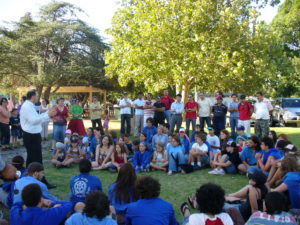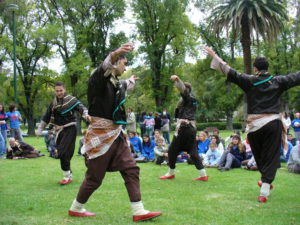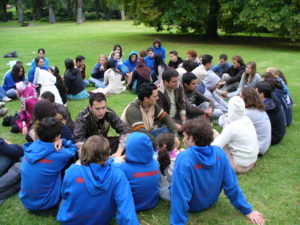Our History
The Australian Intercultural Society (AIS) was established in 2000. It is one of the pioneers of interfaith and intercultural dialogue amongst organisations of a Muslim background in Australia. Many of the programs and events initiated by the AIS have been adopted by other interfaith and intercultural groups in Australia such as Mosque open days, Ramadan Iftar dinners and reciprocal place of worship visits.
“Its organisational motto is ‘building bridges through interaction, information and co-operation’ and many of its activities since the year 2000 have been continuing to reach this motto.”
Prior to 9/11, AIS began to organise Mosque Open days throughout the state in order to provide greater understanding and awareness of the Islamic faith amongst the broader society. Again in the year 2001, the AIS began one of its many initiatives in facilitating school visit programs all across the state to provide further knowledge and information about Islam and Muslims to today’s global citizens. Also in the same year the AIS initiated visits to various places of worship such as churches, synagogues and temples with the Christian, Jewish, Buddhist and Hindu faith groups to name a few.
In the year 2003, the AIS led the way in piloting the Inaugural Federal Parliament Iftar dinner in Canberra during the holy month of Ramadan. This was the very first of its kind and paved the way for many other civil and public organisations to adopt the Islamic tradition of breaking bread and sharing a meal with others in the holy month of Ramadan.
In the following year, 2004, the AIS began to host home Iftar dinners during the month of Ramadan at a grass-roots level to enable better understanding and knowledge of the Muslim faith amongst those who weren’t familiar with the month of Ramadan. In a breakthrough first for the AIS, the launch of the Dialogue Asia Pacific Journal (DAPJ) took place, providing quarterly issues on matters that pertain to society, faith, intercultural and interfaith developments.
The year 2005 was the establishment of one of the events and programs the AIS is most well-known for. The study tours to Turkey. Not only were these tours a chance to commemorate the Australians who passed on ANZAC Day, these tours also allowed many participants to get to know the inspiration for the AIS, the Hizmet movement and its participants throughout Turkey.
In 2006, the AIS began its Neighbourhood days, whereby members of AIS would visit their neighbours with Noah’s pudding and explain its significance for the Abrahamic faiths. Also in the year 2006, the AIS commenced Youth encounters programs (pictured below) with various interfaith groups to create an opportunity at an understanding of one another’s faiths in an effort to find common points between each other.
Again, beginning in the year 2006 was the Sheb-i Arus whirling dervishes of Rumi initiative, that sought to commemorate the life of Mawlana Jalaluddin Rumi, an influential 13th century Sufi scholar and his contributions to Islam. Such programs all aim to lead a more harmonious, inclusive and cohesive society.
The Istanbul-Rome Interfaith study tour which took place in 2007, a unique, distinguished initiative and the first of its kind, was coordinated by the AIS in conjunction with the Ecumenical Interfaith Commission (EIC) in order to get a deeper understanding and learning experience of the Muslim and Christian faiths. Also in the year 2007 was the AIS sponsorship of the launch for the inaugural Fethullah Gulen chair at the Australian Catholic University (ACU) demonstrating the devotion to education by the AIS.
Another prominent event synonymous with the AIS was established in 2008. The Noah’s Ark boat cruise program which brought together people from all walks of life to appreciate that as humanity we are all on the same boat and we must work hand in hand to create a more peaceful, tolerant and better society.
In 2012, the AIS also partnered with Istanbul Arts and Cultural Centre to organise the Anatolian Turkish Festival, which drew thousands of attendees and showcased Turkish culture through its vibrant music, food and art.
The aforementioned events are just a few of what the AIS engages in to reach its vision and mission goals of fostering and promoting harmonious relations within members of Australian society.



